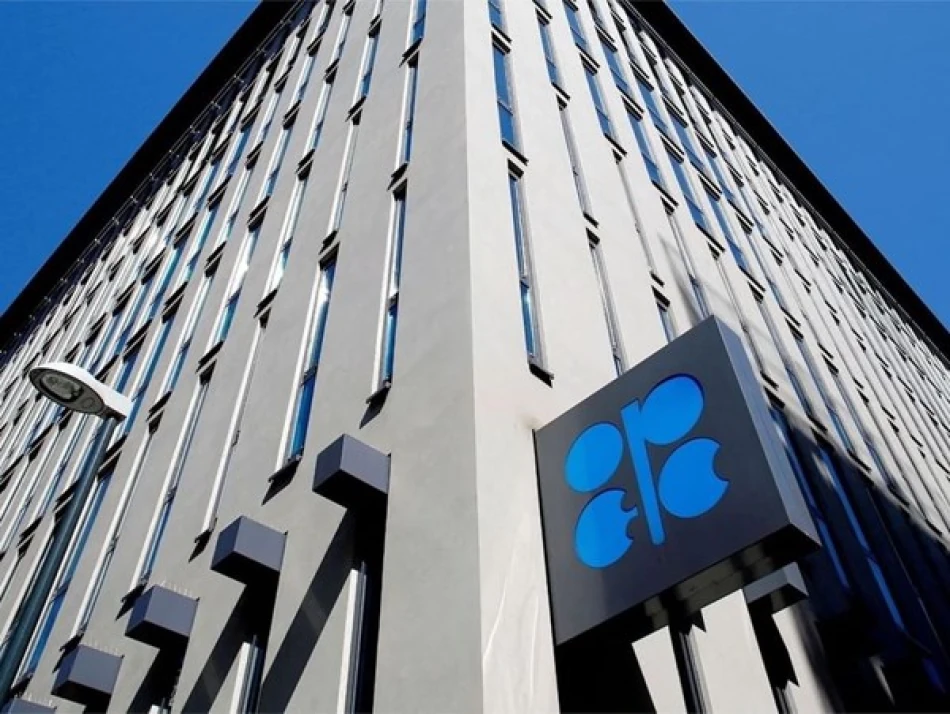
OPEC Fund Provides $25M to Bolster Food Security in Bangladesh
OPEC Fund Commits $25 Million to Bangladesh Agriculture as Food Security Becomes Strategic Priority
The OPEC Fund for International Development has approved a $25 million contribution to strengthen Bangladesh's food security and agricultural resilience, partnering with the International Islamic Trade Finance Corporation. The funding specifically targets fertilizer imports for rice farmers, highlighting how oil-rich nations are increasingly investing in global food systems amid rising concerns over agricultural supply chains and population growth pressures.
Strategic Partnership Addresses Critical Agricultural Needs
Dr. Abdulhamid Alkhalifa, Director General of the OPEC Fund, emphasized the organization's commitment to supporting Bangladesh's development agenda from the fund's Vienna headquarters. The financing arrangement, coordinated through the International Islamic Trade Finance Corporation in collaboration with the Saudi Export-Import Bank, directly aligns with OPEC Fund's strategic priorities in food security.
The funding will enable Bangladesh's Agricultural Development Corporation to import essential fertilizers, creating a direct impact on rice productivity and supporting the broader agricultural sector that employs nearly half of the country's workforce.
Bangladesh's Agricultural Transformation
Population Pressures Drive Innovation
Bangladesh has made remarkable progress in achieving food security for its growing population of over 170 million people packed into a relatively small geographic area. The country has transformed from a food-deficit nation in the 1970s to achieving near self-sufficiency in rice production, its staple crop.
However, this success story faces ongoing challenges. Climate change threatens agricultural productivity through increased flooding, cyclones, and unpredictable weather patterns. Additionally, the country's rapid urbanization is reducing arable land, making efficiency improvements critical for maintaining food security.
Fertilizer Access as Economic Leverage
The focus on fertilizer imports reflects a broader global trend where access to agricultural inputs has become a strategic concern. Following supply chain disruptions during the COVID-19 pandemic and geopolitical tensions affecting fertilizer exports from major producers like Russia and Belarus, countries are seeking more reliable financing mechanisms for agricultural inputs.
Broader Implications for Development Finance
Oil Wealth Diversification Strategy
This investment represents part of a larger pattern where oil-producing nations are channeling petroleum revenues into sustainable development projects beyond their borders. Similar to how the UAE has invested in agricultural technology across Africa and Asia, OPEC member countries are recognizing that global food security directly impacts regional stability and economic growth.
The collaboration between the OPEC Fund and Islamic financial institutions also demonstrates how alternative financing mechanisms are gaining traction in development projects, particularly in Muslim-majority countries seeking Sharia-compliant investment options.
Regional Food Security Networks
This funding arrangement signals a shift toward more integrated approaches to food security, where energy-rich nations provide financial backing for agricultural improvements in food-producing regions. Such partnerships could become increasingly important as global food demand is projected to increase by 70% by 2050.
For Bangladesh specifically, this external financing reduces pressure on government budgets while maintaining agricultural productivity. The country can allocate domestic resources to infrastructure and technology improvements while relying on international partnerships for input financing.
Market and Investment Outlook
From an investment perspective, this type of multilateral agricultural financing reflects growing recognition that food security investments offer stable, long-term returns while addressing critical development needs. The involvement of established financial institutions like the Saudi Export-Import Bank provides additional credibility and risk mitigation for such arrangements.
The success of this Bangladesh initiative could serve as a template for similar partnerships across South Asia and sub-Saharan Africa, where agricultural productivity improvements remain essential for economic development and political stability.
Most Viewed News

 Layla Al Mansoori
Layla Al Mansoori






